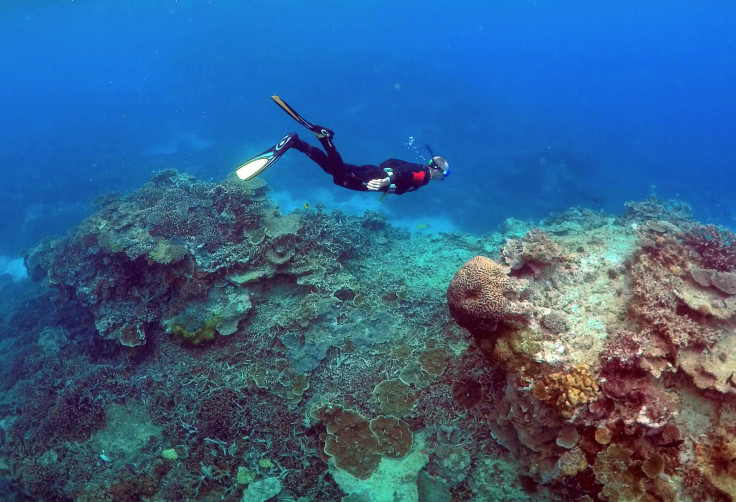Global Warming News: Rising Ocean Temperatures Destroying Beautiful Coral Reefs

Rising ocean temperatures have been harming much more global sea life than Australia's famous Great Barrier Reef alone, which made international headlines recently concerning the depletion of this historic landmark. Vibrant coral reefs around the world have been adversely impacted by global warming, as scientists were racing to save what’s left of the fragile marine environments.
The Great Barrier Reef is one of the seven wonders of the natural world, though it isn't a mystery at all: the gentle Australian ecosystem has sustained thousands of years of sea life, though it's been severely damaged over recent decades, with many experts saying the depletion of its health is past the point of return. Now, all marine biologists and environmental legislation can reportedly do is limit what damage humans can have on the reef in future years.
Read: Great Barrier Reef Not Adequately Protected From Coral Bleaching By Australia
Coral reefs globally have gone from colorful havens for fish and microorganisms into vast, grey deserts at alarming rates since the first international bleaching event, when 16 percent of Earth’s total coral reefs died in 1998.
By 2015, the world saw an unprecedented bleaching event following an extended El Nino in the Pacific region, spurring the largest bleaching of coral reefs in history.
"This isn't something that's going to happen 100 years from now. We're losing them right now," Julia Baum, marine biologist at Canada’s University of Victoria, told Phys.org Monday. "We're losing them really quickly, much more quickly than I think any of us ever could have imagined."
Meanwhile, a new joint-report published last week by the U.S.-based Earthjustice and Australian activist organization Environmental Justice Australia revealed current protections are nowhere near enough to protect the Great Barrier Reef and similar coral reefs due to climate change, as International Business Times previously reported.
"Corals around the world are bleaching and dying because of ocean warming and acidification caused by out of control greenhouse gas emission," Noni Austin, author of the report and lawyer for Earthjustice, told the Sydney Morning Herald. "The plight of these corals – and of the World Heritage sites on which they depend – is growing more dire every year."
© Copyright IBTimes 2025. All rights reserved.






















